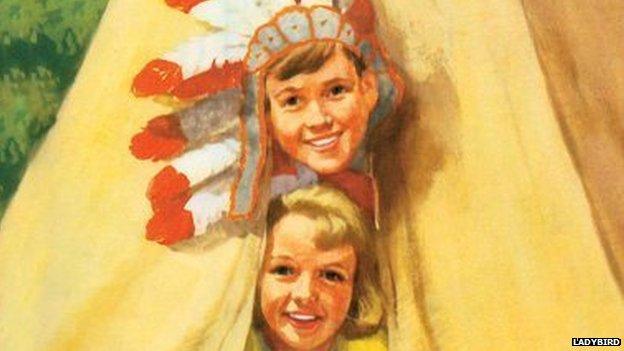The anti-princess book teaching girls to rebel
- Published
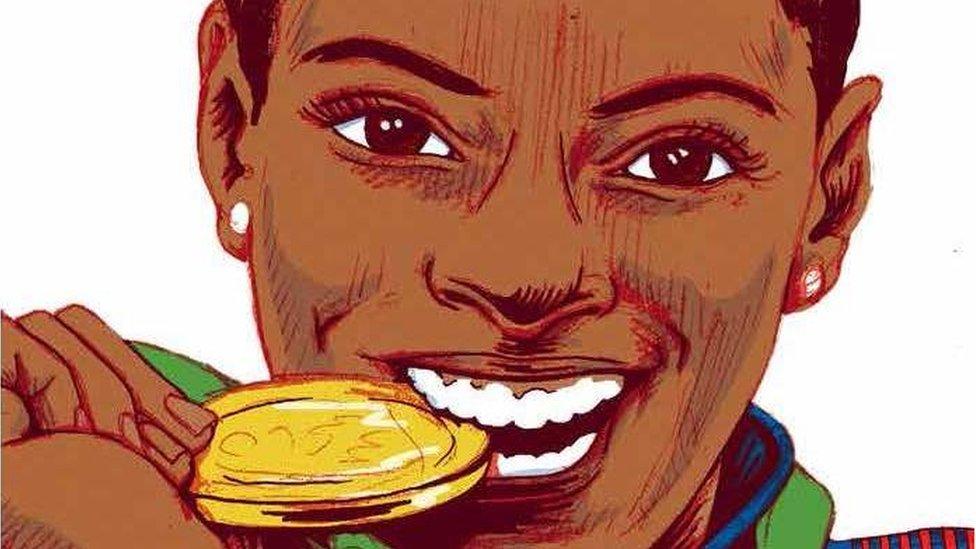
Simone Biles, the 19-year old American gymnast who wowed the world at the 2016 Olympic Games.
"Once there was a girl who loved school."
So begins the true story of Malala Yousafzai, the Nobel Prize-winning Pakistani teenager who was shot by the Taliban in 2012, in newly published children's book Good Night Stories for Rebel Girls., external
The book uses illustrations and fairytale-like stories about 100 inspirational women from across the globe to teach girls to rebel against gender norms and instead follow their dreams.
Families have been describing on social media what their children think of the rebel women.
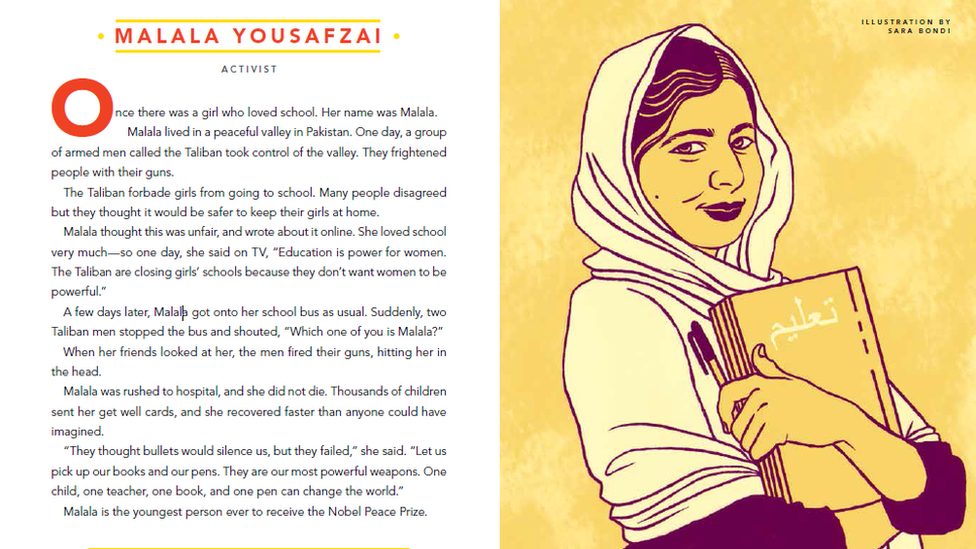
Malala Yousafzai was shot by the Taliban in 2012 after campaigning for the rights of girls to go to school.
Brynn, who is five years old and lives in Chicago, was captivated by the story of Manal al-Sharif, the women's rights activist dubbed "the woman who dared to drive" after she challenged the ban on women getting behind the wheel in Saudi Arabia.
"Brynn kept asking 'So they told her she couldn't drive?'. I would answer, 'that's right'. And Brynn would smile mischievously, 'But she did...'," explains her mum Patti.
Brynn was so inspired that she traced the picture and Patti sent, external it to Manal.
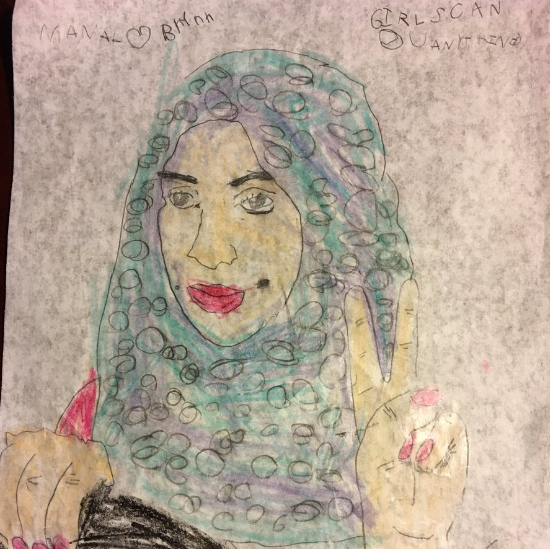
Brynn Maddox (five) traced the picture of women's rights activist Manal al-Sharif and sent it to her.
Another profiled star is teenage American gymnast Simone Biles, whose dazzling jumps and twists wowed the world in the 2016 Olympics.
But there are also lesser-known women in the book, including Grace Hopper, the pioneering American computer scientist, and journalist-turned-weightlifter Amna Al Haddad from United Arab Emirates.
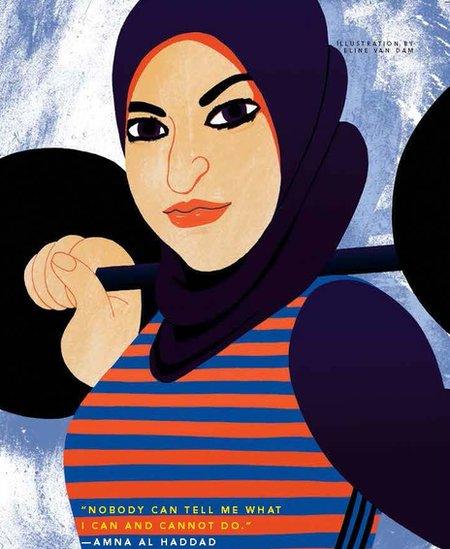
Weightlifter Amna Al Haddad, born in United Arab Emirates in 1989
Two Italian authors, Elena Favilli, 34, and Francesca Cavallo, 33, are behind the book, which was a hit in the US after a crowdfunding campaign raised US$1m (£815,700) in 2016.
In an interview with the BBC, Elena explained that they first came up with the idea when they realised that children's books are still packed with traditional gender stereotypes.
"Children's books have not changed since we were children - the men are still the protagonists and the women are still the princesses," she explained.

Francesca Cavallo (left) and Elena Favilli (right) published Good Night Stories for Rebel Girls after they noticed that many children's books feature traditional stories about women as princesses and boys as heroes.
Disparities in the representation of men and women in children's books has long been an issue.
In 2011, academics at Florida State University found that gender bias in books has existed for more than 100 years.
They identified, external that in almost 6,000 picture books published between 1900 and 2000, only 7.5% depicted female animal protagonists.
You might also like:
BBC 100 Women: Bringing up my son as a feminist
Simone Biles on fame, adoption and meeting the President
Grace Hopper's compiler: Computing's hidden hero
Books and pictures are crucial in defining how children see and understand the world.
By the time they are six, girls see themselves as less talented or "brilliant" as boys, according to research published in January 2017.
The report suggests that both girls and boys aged six tend to identify a "really, really smart" storybook character as a boy, not a girl.
"If all children read is about princesses waiting to be saved by a prince, then the message they learn is that women are not as valuable as men - that we are not equals," says Elena.
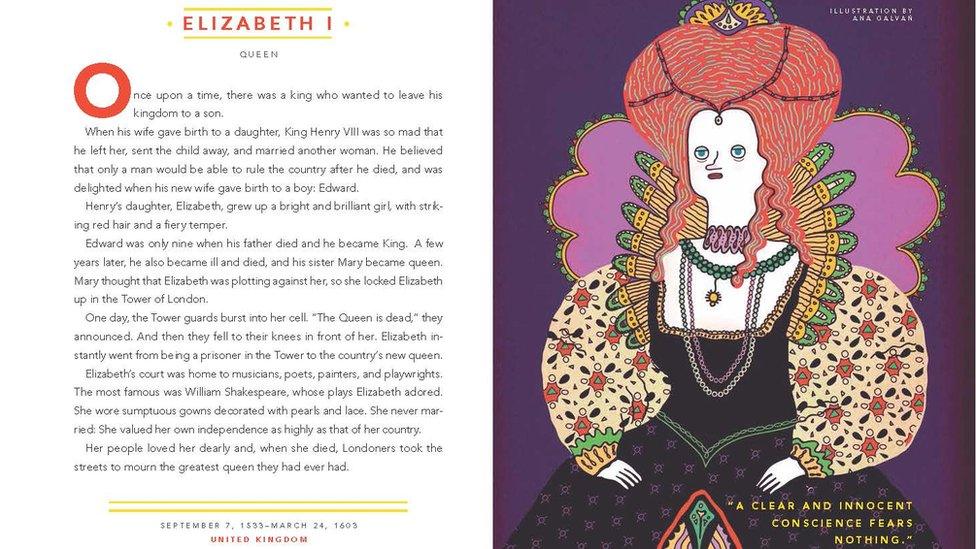
The life of Queen Elizabeth I of England explained in fairytale form.
The authors are not the first to try to address this issue.
In 2015, American psychologist Stephanie Tabashneck published, external a colouring book featuring girls of diverse ethnicities in high-profile jobs such as surgeon, professor and engineer, after she grew tired of seeing girls constantly depicted as princesses.
Princess Smartypants by Babette Cole is another example of a story that defies norms, according to education expert Prof Gemma Moss.
Girl Power: How can books empower young girls?
But Elena and Francesca believe that their emphasis on real-life rebellious women who challenged social norms gives an important message to children who frequently only read about fictional girls.
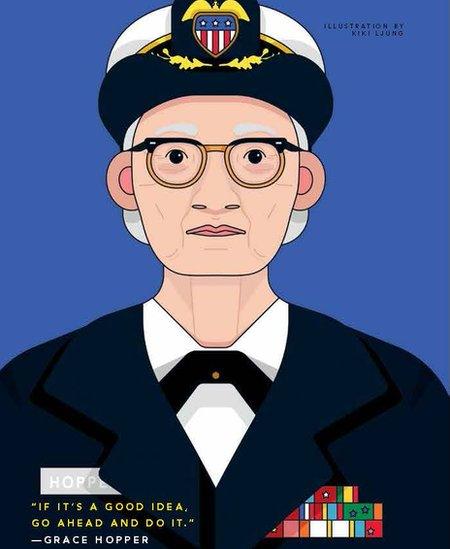
American computer scientist Grace Hopper
"Historically women's achievements have been diminished," says Elena. "Rebels have negative connotations in all cultures - it is usually considered bad for a woman. Our message is that it is OK and even a good thing for women to break rules."
Feminist rally cry
Robyn Silverman, a child development expert in US state New Jersey, curls up every night with her children Tallie (eight) and Noah (six) to read stories from the collection.
She bought the book on the day that the feminist rally cry #StillShePersisted was born, after US Senator Elizabeth Warren was silenced in the Senate in February after reading a letter criticising Jeff Sessions, President Donald Trump's then-nominee for attorney general.
"I wrote a dedication to Tallie telling her to always rise up," Robyn explains.
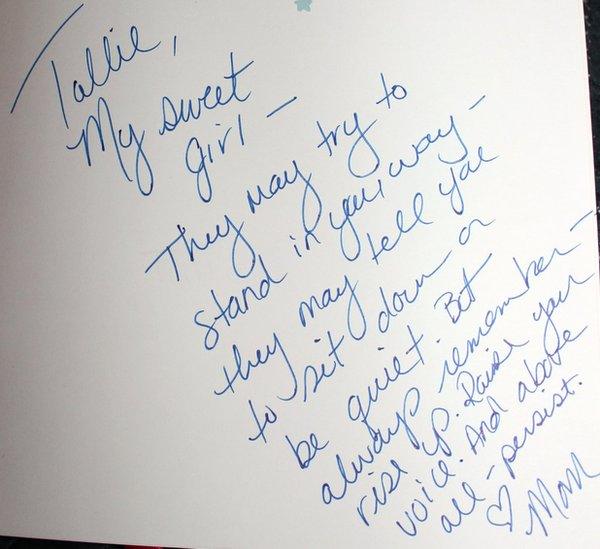
Robyn Silverman dedicated the book to her daughter Tallie. It says 'Tallie, my sweet girl - they may try to stand in your way - they may tell you to sit down or be quiet. But always remember - rise up. Raise your voice. And above all - persist. Love, Mom
"She has already been told 'girls can't do this'.
"But in this book there are concrete examples of women who fought for girls' education when it was illegal, or who fought to vote when women were not allowed in politics - this shows to girls that whatever she is up against, we can overcome it," Silverman says.
Robyn says that her son also loves listening to the stories:
"It's really important because men need to see that women use their skills and pursue their dreams to make progress in the same way as men - it's not about saying women are better then men."
Elena says other parents told her how their young sons loved reading the book: "We need to start early and show children of a young age that men and women are absolutely equal."
- Published27 January 2017

- Published22 November 2016
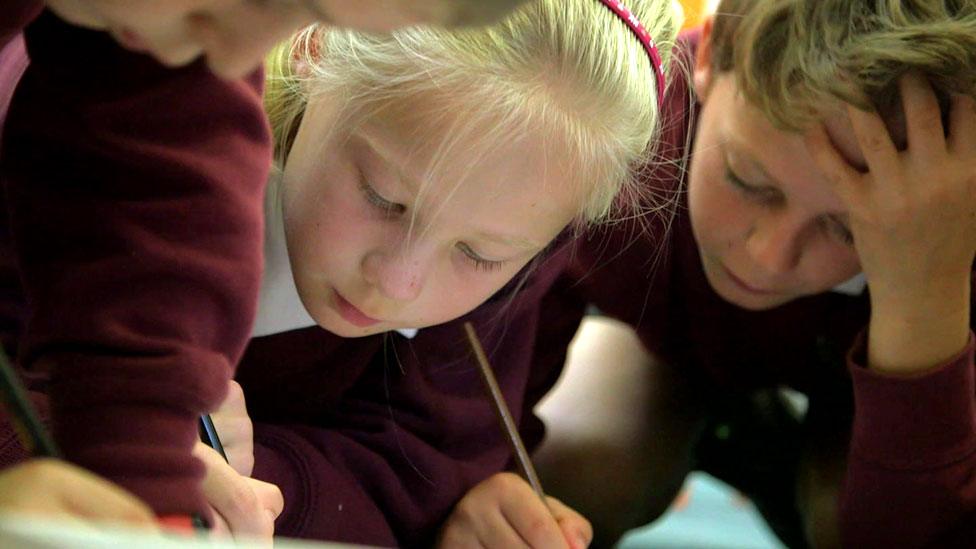
- Published21 November 2014
